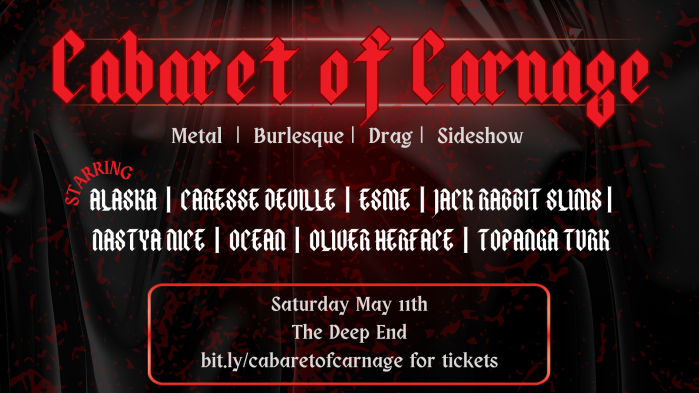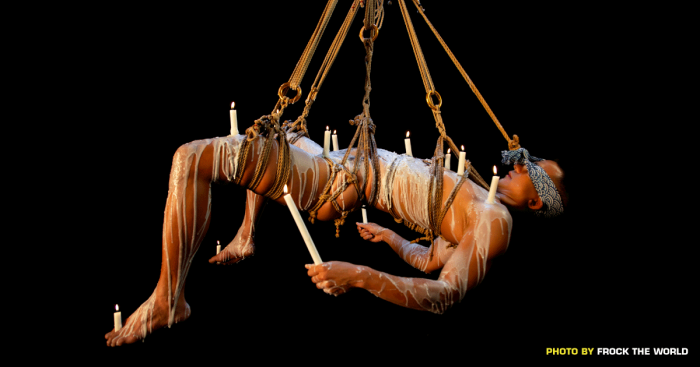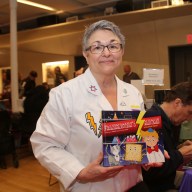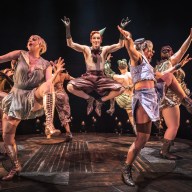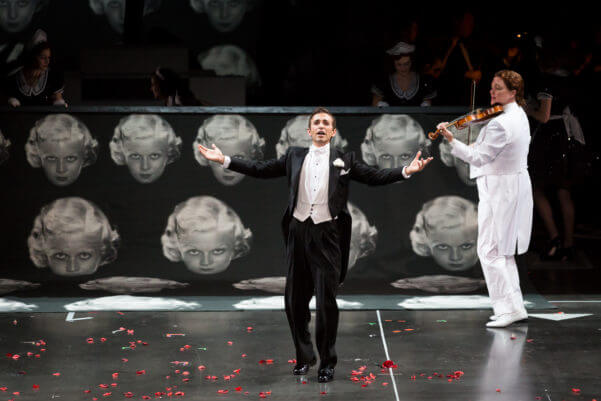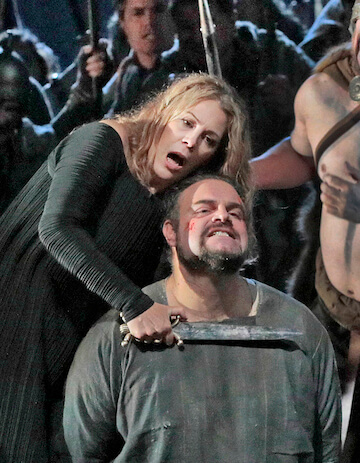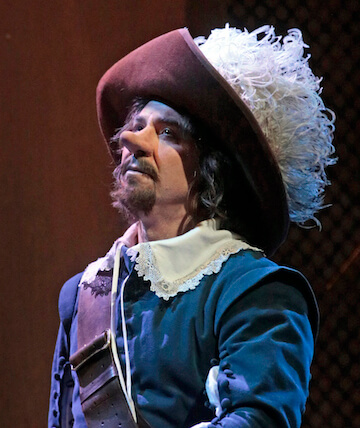Kelli O’Hara in the new Met production by Phelim McDermott of Mozart’s “Così fan tutte.” | MARTY SOHL/ METROPOLITAN OPERA
This month, the Metropolitan Opera unveiled a new production by Phelim McDermott of Mozart’s unsettling sex comedy “Così fan tutte,” a co-production with the English National Opera. McDermott resets this intimate chamber piece from a Neapolitan villa to the Coney Island of the 1950s, featuring a bustling boardwalk with bumper cars, sideshow contortionists, bearded ladies, fire-eaters, and dancing dwarves. The colorful sets by Tom Pye and the period-specific costumes by Laura Hopkins vividly recreate a picture postcard Coney Island of the era. The director explains his concept by saying the highly disorienting and artificial carnival setting makes more credible Ferrando and Guiglielmo deceiving their mistresses by disguising themselves as “Turks” (here Fonzie-esque greaser carny workers).
Ultimately “Così fan tutte” is about people, their romantic illusions, and how slippery and uncertain our perceptions of ourselves and those we love can become. A certain amount of forgiveness of human frailty is necessary in this world because we are all fallible — men and women. McDermott is more interested in the three-ring circus element, actually having Don Alfonso (Christopher Maltman) and Despina (Tony Award-winner Kelli O’Hara) bring on the sideshow entertainers during Mozart’s divine overture. The entertainers perform a charming pantomime that elicits laughter and hoots of surprise over the music. One disgruntled audience member shouted, “Why don’t you play it again so we can actually hear it this time!” The production invites audience members to listen with their eyes — scene transformations elicited applause that obliterated orchestral interludes and introductions. The carnival performers remain onstage throughout to provide background color, perform for the lovers in Act II, and move set pieces. But they remain peripheral to the story.
Music sadly takes a backseat in Phelim McDermott’s production of “Così fan tutte”
McDermott simply does not trust the music to tell a story by itself: a great Fiordiligi can break our hearts in her second act rondo “Per pietà, ben mio perdona” simply standing still and clutching her locket with her lover’s portrait. This production has Fiordiligi (Amanda Majeski) flying in the air above the stage in a hot air balloon. The image of her suspended in space, floating in circles, suggests her isolation and disorientation at this point in the story but the visuals are doing all the work.
On the other hand, this is a comedy (albeit ambiguous), and McDermott directly references French farce by having the disguised lovers chase the sisters through various motel rooms in the Skyline Motel where Despina works as a maid. American sitcoms are also referenced — Fiordiligi and Dorabella with their poodle skirts, tight sweaters, and saddle shoes are dead ringers for Laverne and Shirley. Majeski evokes a gawky bespectacled Penny Marshall as Fiordiligi, while Serena Malfi’s dark, petite, and impressionable Dorabella is a sultrier Cindy Williams. Their disguised lovers could be Lenny and Squiggy, while O’Hara’s Despina with her big bouffant hair and sassy attitude could be Flo from “Alice.” Don Alfonso is a sideshow promoter who morphs into Liberace in a spangled tux in the final scene.
The cast looked young and acted vivaciously. Musically and vocally, this ensemble doesn’t compare with the best Mozart singers of even one generation ago. The best singing was probably supplied by Ben Bliss as a fluent, lyrical Ferrando with a well-balanced, cleanly produced tenor. O’Hara brought the best acting as a cynical, been-around-the-block Despina; she clearly relished taking a break from her usual fresh-scrubbed Broadway soprano wholesomeness. O’Hara’s singing was clean and bright with sunny warmth and convincing Italian diction. Perhaps she had one vocal color but it was a pretty one, and she blessedly eschewed ugly character voices in her Doctor and Notary disguises.
Malfi’s dark sinewy mezzo contrasted but didn’t blend with Majeski’s cool, angular soprano and neither exactly bloomed in the highest register. Majeski (following such Met Fiordiligis as Lorengar, Te Kanawa, Fleming, and Vaness) seemed a very competent American regional singer — her trill was sketchy and the tone clean but generic. Adam Plachetka’s bearish Guglielmo was acted with sly wit and sung with a pleasantly earthy low baritone. Maltman’s smoothly genial con man Alfonso sang and acted with a somewhat tatty charm.
David Robertson’s conducting was fast and lively on the surface but orchestral ensemble and instrumental solos were less than pristine. The lack of a prompter may have contributed to the momentary musical mishaps — O’Hara went up on a long recitative and was hung out to dry repeating phrases until she could exit the stage.
The show is a lot of fun, and younger audience members ate it up. But it stayed fun and superficial even as the betrayals and deception piled up in Act II, and it was there that my interest in this production started to wane. One of my earliest “Così fan tutte” experiences was Peter Sellars’ updated production set in Despina’s Diner with Don Alfonso as an embittered Vietnam vet. That production was willing to dig into the darker recesses of the characters’ psyches. Each bit of physical business was choreographed tightly to Mozart’s music — music and action worked together without one upstaging the other.
The Met’s 1996 Lesley Koenig production had idyllic-looking pastel sets but the story it told was anything but an idyll in its first seasons. Thomas Allen’s Alfonso was a bitter misanthrope with a sadistic streak, and the finale found the four lovers reunited but deeply at odds with each other and themselves. (Later revivals conventionalized and flattened Koenig’s direction.)
Carnivals can turn into dark and frightening places as Alfred Hitchcock and Stephen King love to remind us. McDermott’s production missed the opportunity to take Mozart’s lovers (and us) through the funhouse mirrors or haunted cavern ride in Act II. After nearly three hours, this “Così” sideshow still thrills the kiddies but the adults got bored and fatigued.
“Così fan tutte” will be broadcast internationally in HD on March 31 at 12:55 p.m. Check metopera.org/Season/In-Cinemas/Theater-Finder/ for participating movie theaters.



